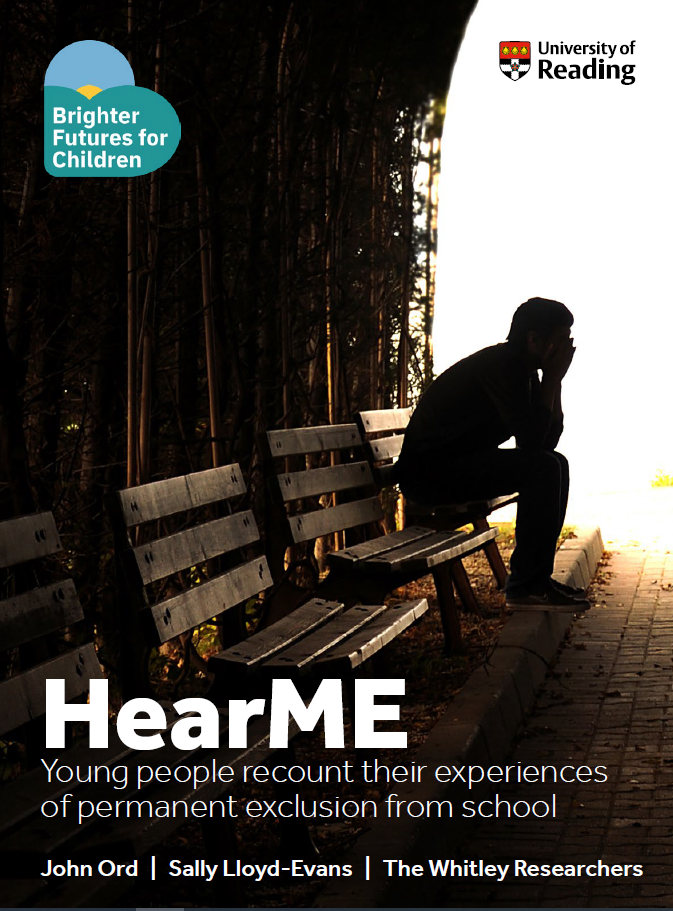
A report by the Whitley Researchers and the University of Reading explores experiences of school exclusion from the perspectives of young people.
By centring the voices of young people and their families rather than schools, the report explores the school journey, emotional experiences of education, and life-changing experiences of exclusion.
The report was commissioned by Brighter Futures for Children in 2021, with the bold remit of wanting to “hear the honest and potentially uncomfortable views of the children and young people who have experienced permanent exclusion”.
Brighter Futures for Children commissioned the report in the national context of pressures on the current education system, rising rates of fixed and permanent exclusions in England, and the disproportionate exclusion of certain groups of children including, among others, Black Caribbean boys, Gypsy, Romany and Traveller children, children with special educational needs or disabilities (SEND) and those eligible for free school meals.
The aim is to prompt further development of good practice around prevention, early intervention, and alternative provision – all shaped around the experiences of young people.
The research findings and recommendations are based on in-depth interviews with three young people (as well as a literature review) and as such the report also calls for “further research that seeks to understand the experiences of more students, schools, teachers and stakeholders”.
Findings included:
- The transition from primary school to secondary school is difficult and carries the risk of negative patterns of behaviour being carried across. Pupils can find the change in subjects challenging, with preferred subjects narrowing to just a few (such as drama or sport). Interviewees also thought that teachers at secondary school are stricter and not as friendly or helpful as those at primary school.
- The use of isolation booths and cubicles is traumatic and “efforts at containment or confinement were so severe and intolerable to the students that they led directly to incidents that the school interpreted as warranting permanent exclusion”.
- There appears to be an “inexorable continuum that travels from multiple detentions to internal isolation, temporary exclusion to permanent exclusion … the underlying reasons for ‘poor’ or difficult behaviour do not seem to be considered – the behaviour system appears to suppress conduct rather than address root causes“.
Recommendations included:
- Taking a trauma-informed and therapeutic approach to education could help prevent permanent exclusions.
- Training in equality, diversity and inclusion for students and staff could help with shared learning around relationships, mental health, bullying, trauma and intersectionality.
- A child rights based approach could provide “a useful lens through which to view the school exclusion process, particularly for exploring the rights of children and their families to be heard and consulted in life-changing decisions, and the use of isolation rooms in schools”.
